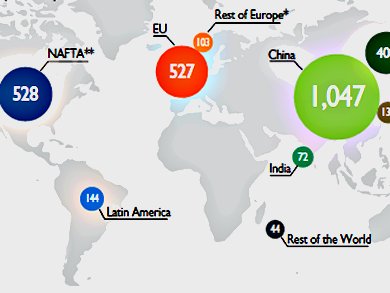Cefic looks in their brochure “Chemical Connections” on the benefits for Europe of expanding global chemicals trade. According to Cefic, free and fair trade is critically important for the chemicals industry and its 1.2 million workforce. 90 % of GDP growth will take place outside Europe in the next decade. International trade can boost industry competitiveness, stimulate the development of new markets through innovation, create more jobs, and foster growth in Europe.
However, much remains to be done in terms of opening markets. For example, the chemical industry needs better access to affordable energy and raw materials and greater harmonization of standards and regulations around the world.
The brochure examines Europe’s trading relationships with several partners, including USA, India, Japan, China, the Gulf Cooperation Council, and Mercosur countries (Argentina, Brazil, Paraguay, Uruguay, Venezuela), and concludes with seven proposals to enhance prospects for European jobs, firms, and regions:
- Eliminate all tariff and non-tariff barriers for chemical products.
- Reinvigorate multilateral talks and push for more liberalization, setting global standards.
- Deepen ambitious bilateral negotiations with the US and Japan, and launch bilateral trade talks with China.
- Guarantee protection of investments against arbitrary decisions and promote investor-state dispute settlement clauses in FTAs.
- Promote European access to quota-free and duty-free raw materials and energy.
- Ensure fair competition between foreign and domestic companies in emerging countries.
- Stimulate the establishment of user-friendly rules of origin.
- Chemical Connections, Cefic 2015.
- CEFIC (European Chemical Industry Council), Brussels, Belgium




